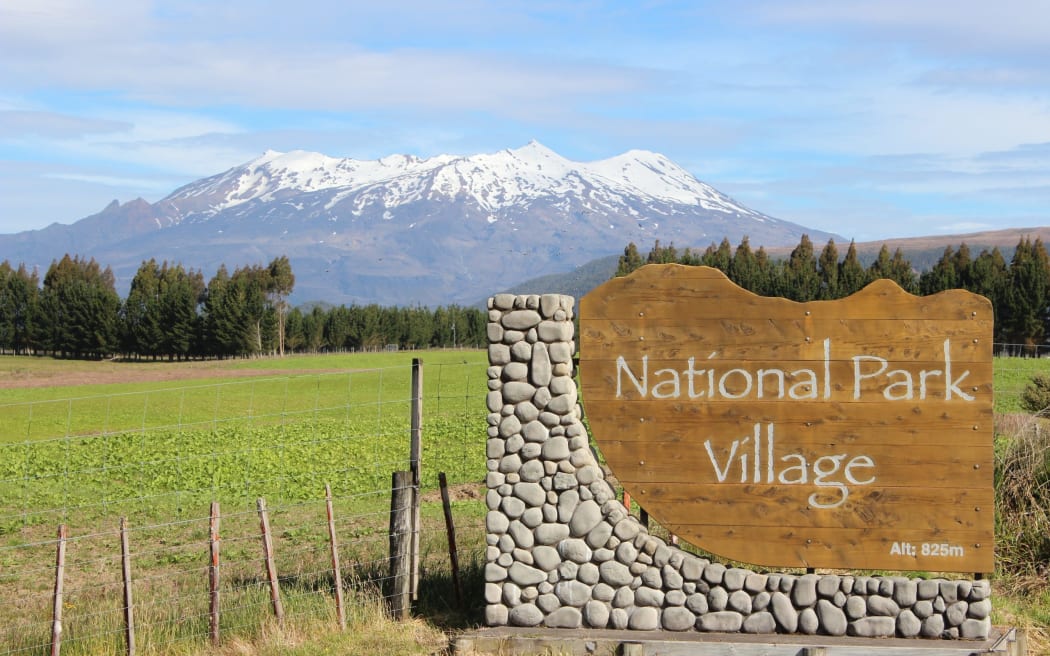
The decision on an iwi proposal to change the name National Park to Waimarino has been referred to the Land Information Minister. Photo: LDR/Murray Wilson
An iwi bid to change the name of central North Island village National Park has been referred to the Land Information Minister to make the decision.

The name change was discussed at the Ngā Pou Taunaha o Aotearoa New Zealand Geographic Board’s tri-annual meeting after a three-month public consultation on proposals from iwi collective Te Korowai o Wainuiārua, which represents hapū and iwi in the area.
If the Geographic Board doesn’t agree with objecting submissions, it can ask the minister to make the final decision.
After considering 2088 submissions on changing the unofficial recorded place name National Park to the official place name Waimarino, the Board has referred the proposal to Land Information Minister Chris Penk for a decision.
National Park is the current name for the village on the western edge of Tongariro National Park but iwi researchers claim Waimarino as the original name.
The iwi collective said Waimarino refers to the “calm waters” pooling on the plains as they come down from the mountains of the volcanic plateau.
In the 1880s, Waimarino was the name of the survey block that contained 450,000 acres of lands in the upper reaches of the Whanganui River.
Waimarino Station opened in 1908 on the North Island Main Trunk and the ‘Town of Waimarino’ was surveyed for the surrounding village in 1910. NZ Railways changed the station’s name to National Park Railway Station in 1926.
The Geographic Board also considered 489 submissions on the iwi proposal to reinstate the name Waimarino Railway Station.
Board Secretary Wendy Shaw told Local Democracy Reporting there was no statutory timeframe or deadline for the Minister to make a decision.
The number of submissions for and against the proposals have not been made public.
“It is a priority to allow the statutory process to run its course without prejudice,” Shaw said.
“Therefore the report the Board considered at its hui on 30 April, and the hui minutes when ratified, will be made available on the Toitū Te Whenua Land Information New Zealand website when decisions on these proposals have been made.”
A name change can be approved outright by the Board if there are no submissions or only supporting submissions.
If a submission objecting to the name is upheld by the Board, it can make a final decision. However, if it doesn’t agree with objecting submissions the Board refers the proposal to the Minister for a decision.
The two proposals were supported by Ruapehu District Council, Ōwhango-National Park Community Board, Federated Mountain Clubs, Tongariro-Taupō Conservation Board, Visit Ruapehu and others, and KiwiRail has already installed dual-name signage at the railway station.
The 180 or so permanent residents in the village are divided, some saying there is no evidence that Waimarino was the original name of the settlement.
The National Park Village Business Association also voiced concern that a name change would negatively affect local businesses that had invested in building the National Park Village brand.
The Geographic Board declined proposals in the 1950s and 1960s to alter one or both names to Waimarino because of local opposition to the proposals, potential for confusion with other Waimarino names used for other areas and the established use of the name National Park.
LDR is local body journalism co-funded by RNZ and NZ on Air.